So I Married a Much Older Man
One writer explores why some women choose husbands old enough to be their fathers.
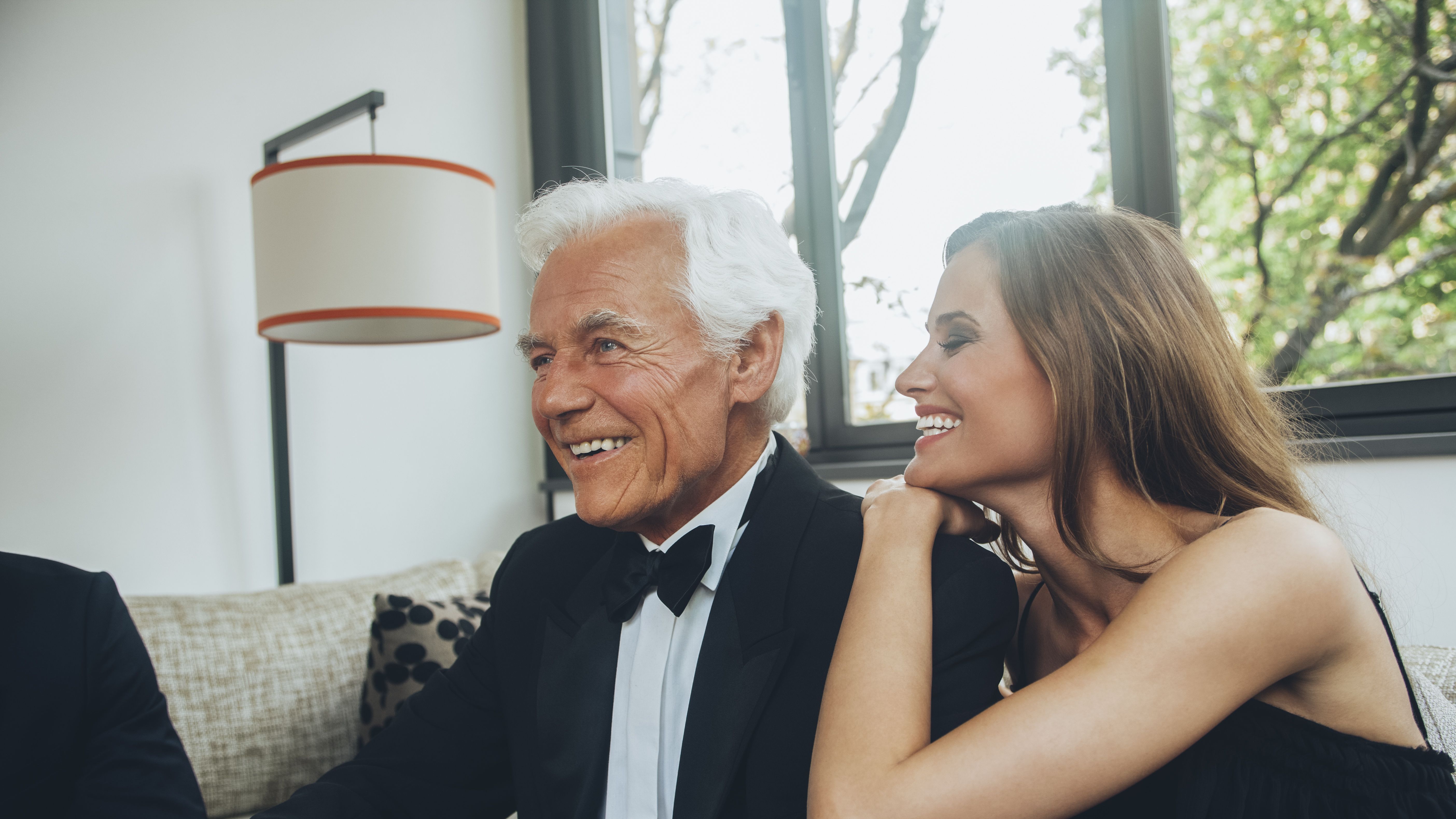
At 7 a.m. on a recent Monday, I sat in a beige waiting room surrounded by back issues of AARP The Magazine and pamphlets on gastrointestinal health. “Is anyone here for Jack?” a nurse asked. I raised my hand, and she searched my face for the word she needed.
“Your…uh…um…”
“Husband,” I filled in for her.
“Right,” she said, eyebrows raised. “Your husband’s colonoscopy is done and he’s nearly ready to go home.” She walked me to where Jack, still loopy from anesthesia, chatted merrily with the surgery center staff, his naked butt exposed in his backless hospital gown. He made the nurses giggle with slurred jokes about Snapchatting his experience in the endoscopy ward—funny, because Jack's never used Snapchat.
“He’s such a hoot!” one of the nurses said.
Couples like us, with an age gap of 20 or more years, have a 95 percent chance of divorce.
Ten years ago, I couldn't have imagined settling down with a man 20 years my senior, “hoot” or not. There’s the biannual colonoscopy to sit through, because at 52, Jack’s at that point in life. There’s also the social stigma, the difference in career phases, the fact that Boyz II Men brings him no childhood nostalgia whatsoever. Our differences, experts say, give couples like us, with an age gap of 20 or more years, a 95 percent chance of divorce.
Given the statistics, why do women like me yoke ourselves to men old enough to be our fathers?
Get exclusive access to fashion and beauty trends, hot-off-the-press celebrity news, and more.
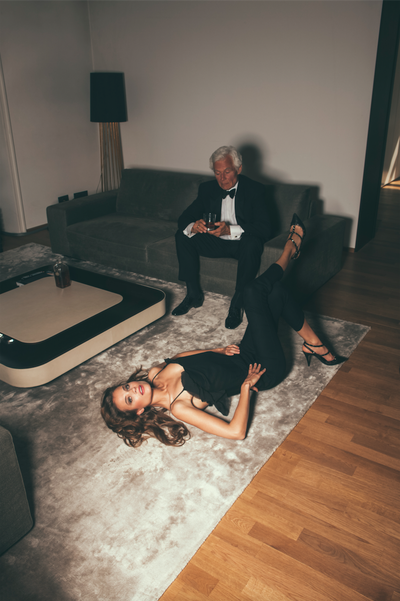
Popular theory suggests gold-digging is in effect, since older men presumably have greater financial security. But three years into my marriage, I’m still (happily) driving a 2004 Honda Element with 160,000 miles and a back door held shut with my German Shepherd’s leash. While I’ll admit that it was Jack who introduced me to the joys of bottled wine over boxed and hotels over hostels, my husband is a guy who invests most of his money back into his business and his community—one of the reasons I fell for him—and I work hard to bring in my own. Besides, recent research suggests it’s millennial men who are most likely to marry for money. With more than 40 percent of American breadwinners now female, I'd argue we're looking at the rise of the sugar momma.
Harder for me to write off, according to scientists, is another unflattering explanation for May-December romances: the dreaded daddy-issues theory. While an American Psychological Association study debunked the hypothesis that younger wives are compensating for lousy father-daughter relationships, the research didn’t address women like me, whose dads have been caring and present and normal. Could we be the ones subconsciously attracted to a ::cringe:: daddy-husband?
“The short answer is ‘yes,’” says Pepper Schwartz, Ph.D., AARP's love and relationship expert and best-selling author of American Couples. “A woman can have a healthy relationship with her dad and still be looking for that father figure in a spouse. Someone who can protect them and teach them—someone who has taken on the world, and who can help them take on the world, too. It’s not that these women are sexualizing their dads, but the things that a dad represents.”
RELATED STORY
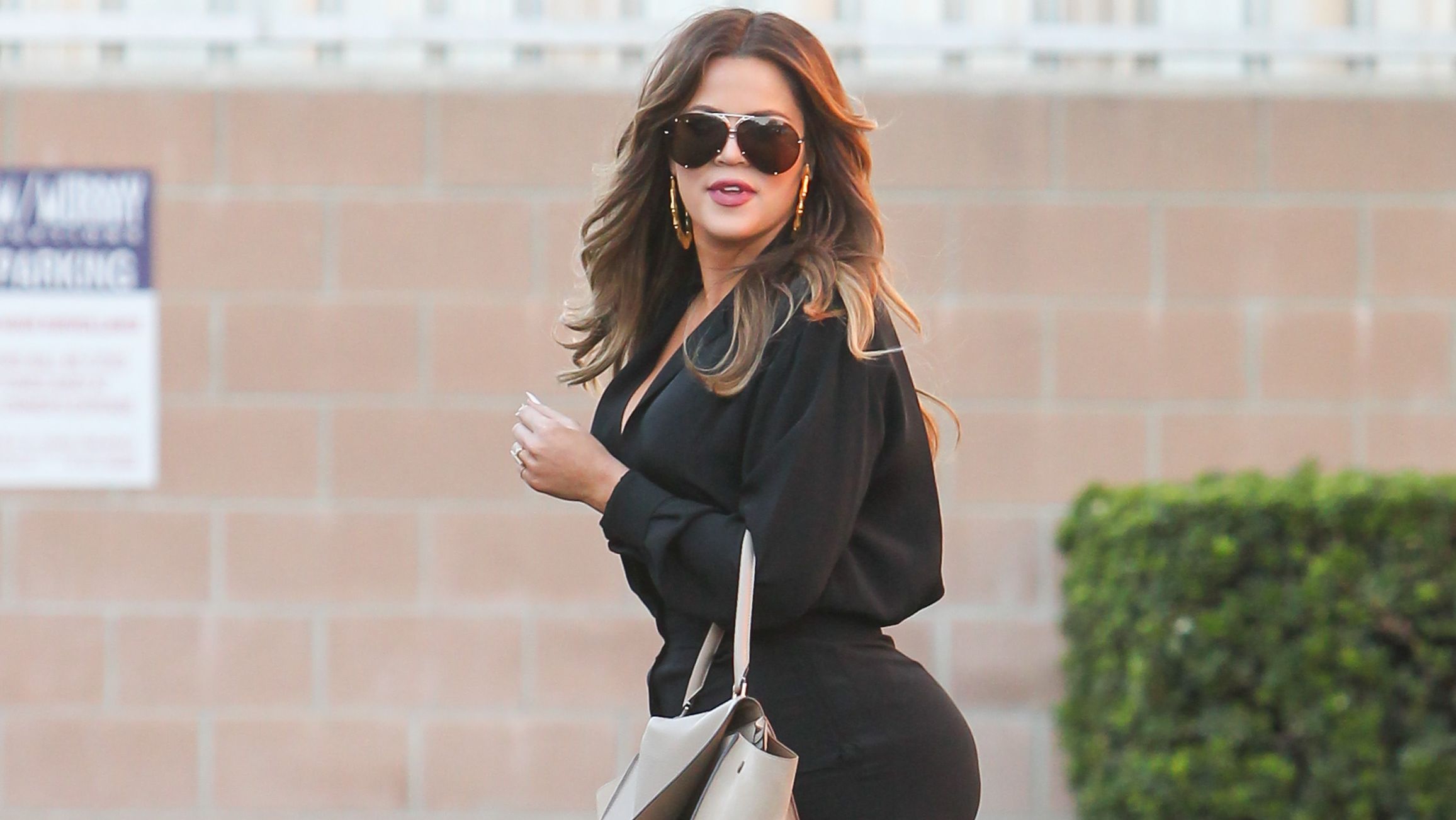
Initially, Jack represented nothing for me but a job. When we met eight years ago, I waited on his table at a fancy restaurant in a small New Jersey town. I was a graduate student studying journalism, and I knew Jack (who was on a date at the time) was the owner of a local publishing company. Between taking an order and delivering a check, I pitched myself as a writer-for-hire.
A gig wasn’t in the cards—his company wasn’t hiring—and neither was a romance. Jack would tell me later that, although he’d found me cute in an overly eager, naïve sort of way, I wasn’t his type. His celebrity crush is Martha Stewart, and I have neither her bone structure nor her flair for miniature fruitcakes.
A woman can have a healthy relationship with her dad and still be looking for that father figure in a spouse.
But a year later, Jack stumbled upon a blog I wrote and sought me out to offer me a job. It felt thrilling to finally be working in a real office with real business cards and a real mentor. When I needed an apartment—tough to find in a resort town with sky-high rents—Jack offered me a room in his house, which meant we frequently worked late before coming home to split a bottle of wine. It was here I discovered Jack’s bleeding heart for animals, his passion for restoring vintage typewriters, and his talent for narrating dull car trips with an uncanny Sean Connery impersonation. Somewhere between copy-editing and cabernet, we became great friends...and then more.
RELATED STORY
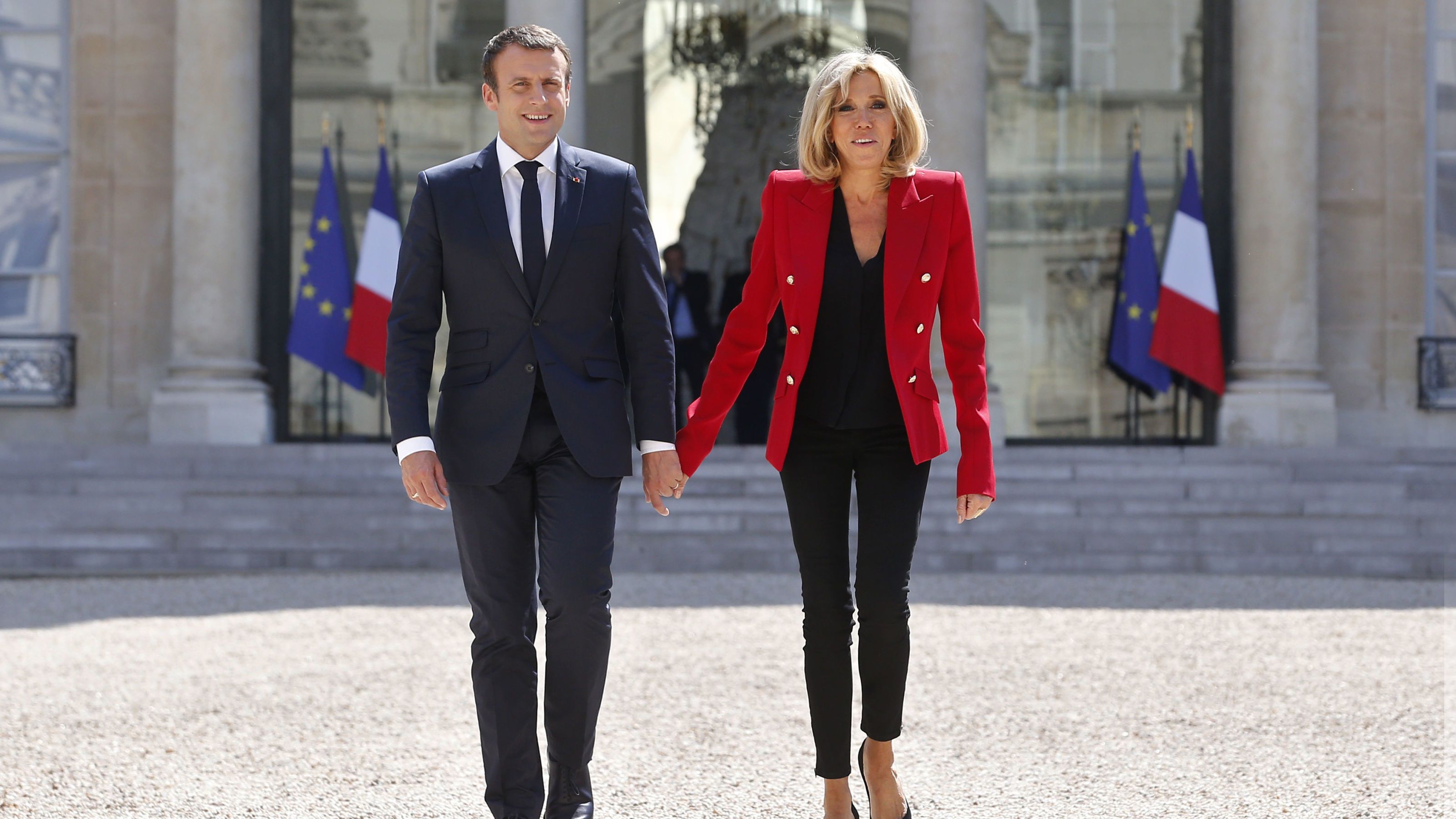
It complicated everything. I fretted for months over revealing my new relationship to my traditional parents, who were surprisingly alright with it. I worried that already living with Jack would torpedo our chance at love. And I worked extra hard at my job in order to show the small-town-gossip set I wasn’t some floozy with a fetish for baby boomers. So the implication that falling for Jack could have been a ploy by my subconscious to secure a daddy figure who’d make life easier? Cue the explosion of my feminist head.
My raised hackles are to be expected, sociologists say. Although society is trending toward greater acceptance of individual choice, there still exists the idea that by marrying older, a woman has turned against her gender (i.e., she’s perpetuating the fallacy that men should be providers while a woman’s value is as a trophy). One friend told me he’d lost all respect for me when I committed to someone so far my senior. And when Jack and I married three years ago, acquaintances placed bets on how long it would last.
“It’s a paradox,” Schwartz says. “In many cases, the more progressive a woman’s friends, the more likely they are to raise their eyebrows at a big age gap. Often, it’s not that there is anything wrong with the love or desire between the individuals, but with the way it works in terms of placement in the world—she may get a lifestyle upgrade or an intellectually potent guy, but it often displaces the woman more than the man.”
Case in point: Shortly after we started dating, I’m the one who quit my job. Since Jack’s life in New Jersey was already established, I also reimagined my five-year plan, which had involved moving to a bigger city with a larger network of young professionals and fewer early-bird specials. I can see how, on paper, the power dynamics of my relationship look ripe for judgement. And that judgement is not entirely unfounded. In addition to his lumberjack good looks, I am attracted to Jack’s intellectual potency, his worldliness, and the unwavering way he protects the things he loves—all idealized “daddy” qualities (albeit ones I’d also find attractive in a 20-something).
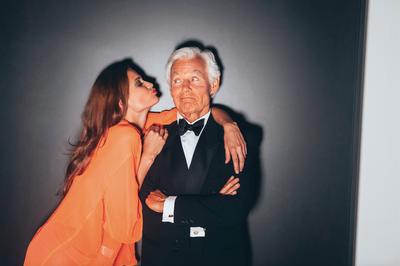
There have been times—like when we started having sex—that I’ve happily let Jack take the lead. After all, he’d been doing it longer than I’d been alive. You would think his considerable experience would make me, a relative prude, feel self-conscious about my lack of sexual savvy, but it did the opposite. I’d spent my adult life pretending to be comfortable with physical intimacy, trying too hard to be sexy and desirable. Being with someone so seasoned in the sheets—coupled with my desire for an honest relationship with this great guy—allowed me to relax and let Jack teach me. (The lesson: I should be enjoying sex, too.) The double orgasms I started experiencing made it easy to laugh off friends who said they didn’t “get” my relationship, as though it were a word problem from high school algebra. The 2011 book Getting Intimate: A Feminist Analysis of Old Age, Masculinity and Sexuality, details several studies indicating men become less selfish in bed as they age. In it author Linn Sanberg, Ph.D., quotes a Swedish verse: “With the older man you need not worry. He does it thoroughly; he’s in no hurry. But younger men, they are just shit. They barely get there before ‘that’s it.’”
For every sexy advantage, there’s an unsexy obstacle: Jack’s idea of classic TV heaven is Gunsmoke; I’d rather binge Gilmore Girls. He bemoans the entitlement of the, ahem, millennial generation over dinner. And my innate millennial thirst for adventure often clashes with Jack’s desire to protect a wonky ankle.
left']Jack’s idea of classic TV heaven is Gunsmoke; I’d rather binge Gilmore Girls.
A recent ziplining fiasco comes to mind. After accidentally zipping half-way back, Jack was left spinning forty-five feet above the ground in slow, dizzying circles, spewing four-letter words that echoed through the aerial course I’d harangued him into trying. Later, while laughing about his rescue over a beer, he told me what had run through his mind while swaying in the breeze: “I’m too old for this shit.”
Then there’s the greatest practical disadvantage to marrying older: the worry that you’ll spend a chunk of your life feeding him Ovaltine through a straw before ultimately dying alone. Last year, after Jack contracted Lyme disease but before we received a proper diagnosis, I convinced myself he was dying and that the thing everyone had warned me about, the relatively short shelf-life of my marriage, had come to pass. If Jack had been in his 30s, I’m not sure I would have made the leap from “strange symptoms” to “certain death” so quickly.
So, if it’s possible to argue that marrying older wasn’t in my best interest, in whose interest was it? My hypothetical children's.
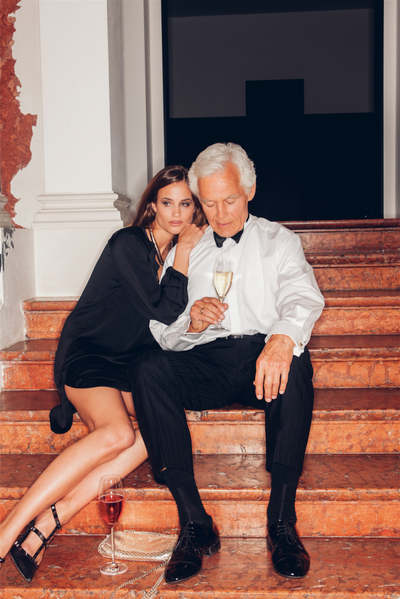
Evolutionarily, "women who were attracted to older men fared well and produced healthy offspring, since older men tended to have resources," says Darren Fowler, M.S., a Halifax-based clinical psychologist and the co-author of the aforementioned daddy-issues study. "These types of sexual preferences have been molded into our brains.”
In prehistoric days, “resources” would have included a good network of hunters, better equipment for spearing saber-toothed tigers, and generally more caveman knowhow. Today, “resources” refers more to financial prowess—a diversified portfolio or a job near the C-suite—but the general idea is the same: the guy who's had more time to accrue these things is presumably better equipped to help care for a child. The fact that I’m not even sure I want children? Doesn’t matter, Fowler says; I could have been nudged by my subconscious.
But everything's a tradeoff. Coupling up with an older man compounds the pressure to have children that’s placed on all women; I can hear my biological clock ticking louder whenever I picture Jack coaching little league at 65. All the studies confirming links between aging sperm and high-risk pregnancies don’t help. The danger is so great, scientists in New Zealand have spent $345,000 studying the sexual habits of zebrafish in an attempt to pinpoint the biological drive that compels human women to choose older mates, despite the hazards.
RELATED STORY
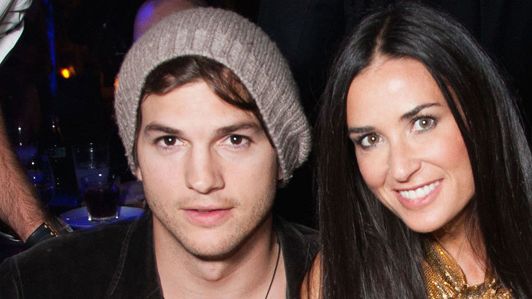
While I’m not sure I care to know what a fish has to say about my life choices, I understand the fascination with age gaps. Determining our comfort zone (5 years? 20? 40?) is an interesting litmus test for our personal moral framework and an opportunity to reflect on the social constructions within that framework. I’ve spent some time thinking about this well-argued piece by Heather Schwedel, in which she calls women like me traitors to our generation. Schwedel refers to an especially large age gap as “everything that’s wrong with our sexist, youth-worshipping, male-privilege-run-amok society.”
Honestly, I don’t know where I stand. Maybe I am a traitor. Or maybe Schwedel’s belief is informed by the same mercurial zeitgeist that determines when shoulder pads are out of fashion and wallpaper is hip again. Maybe we’d all do well to dress and decorate and marry however the heck we want. Isn’t it possible two mismatched people get together simply because they hit it off, no complex sociobiological equations required?
“The ultimate thing is looking at this person to person, marriage to marriage,” Schwartz says. “Sometimes, there’s no accounting for the psychological bond between people." And sometimes, a few failed ziplines or dates in the endoscopy ward are a small price to pay for that bond.
